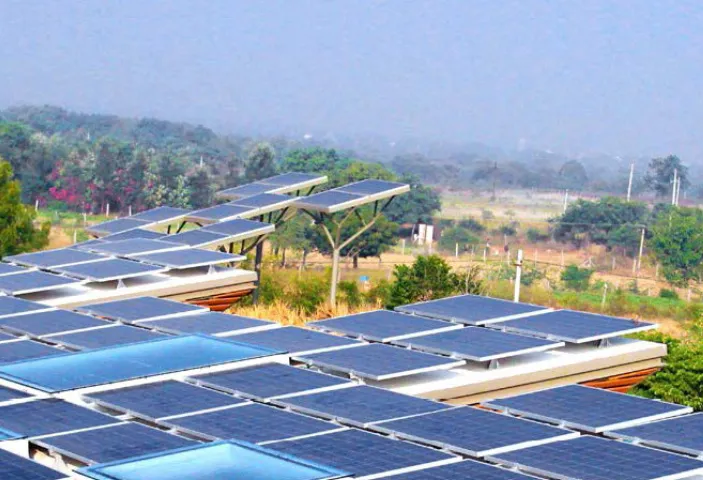 Contact us
Contact usIntent
Community
Studio Organo Concepts
About Us
Subsidaries
Studio Organo
TS RERA No.P02400003403.
TS RERA No.P02400003403.

I have a confession to make: I like looking at ants and ant colonies. They fascinate me! This fascination is the result of so many unanswered questions that crop up in my mind when I see a colony of ants. How are they able to build such complex structures? Is there a Chief Architect in the colony drawing up blueprints and communicating in Ant Speak? Does the aggregation of instinctive behaviour of each ant lead to a collective intelligence that is amazingly intricate? Maybe.
If so, where do the individual intelligence end and collective intelligence start? Scientists at Research Center on Animal Cognition in Toulouse, France, who share the same interest as I – looking at ants moving around – but with more scientific vigour, have started to simulate the construction of complex ant hills using basic instinctive rules such as detecting sand grains left by other ants using chemical markers. If there is an Ant Constitution, "Of the Colony, By the Colony and For the Colony" would be the motif.
But I will get to the point. Small steps taken at the micro-level can bring about big changes in the outcome at the macro-level. Unfortunately, like an untimely rain destroying an ant trail, the current crisis caused by COVID-19 has put a stop to any progress in the economy and is placing enormous stress on the government to provide basic necessities for the people. To provide food, power, water, essentials while the country is in a lockdown is not easy. A thank you is in order for all the people who are working so we stay back home.
But every little helps. Can we contribute in some small way to reduce the burden on the government during this critical time? Just like the ants, what is our instinctive individual responsibility to the people and planet?
This instinctive response, for us, is to develop eco-habitats. Eco-habitats reduce the load on government resources and infrastructure by
Another positive effect that this creates is to engage residents to get to work, dirty their hands and co-create towards making the community more self-reliant. For instance, at Organo Naandi, residents are coming together to help the community in various aspects of community management such as farming, waste management, composting, water management and power management. As the community is being run by the residents, avenues to reduce operational costs and improve efficiency are being identified. Frugality has become pervasive in the community. The lockdown has also helped residents get used to working through virtual offices which saves time and improves mental & physical health.

The lockdown has shown that an eco-habitat can help bring about individual actions towards the collective cause of not being a burden on the environment and by extension on the city infrastructure.
